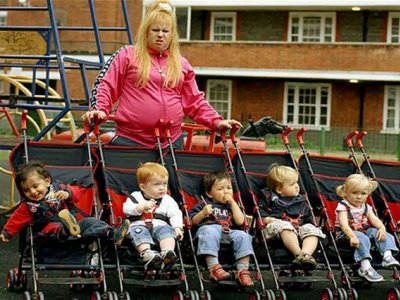
THE HAVE NOTS ARE NOT CHAVS
The so-called classless society still reserves special opprobrium for one group of people. Is there a distinctive Christian take on this development?
‘We’re all middle class now’ is a common refrain in conversation today. It is never quite articulated what this means, other than a vague aspiration to shop at Waitrose, ski at Aspen and clothe your children from the Boden catalogue. Behind this lies a sense that the class structures of Britain have broken down such that many adults who define themselves as having grown up in a working class environment now perceive their lives differently. This reflects social mobility and new affluence. But not everyone could describe themselves as such and many parents feel that their children, saddled with student debts, unaffordable housing, high unemployment rates and a wide range of poorly paid service sector jobs to choose from, may come to be the first downwardly mobile generation in the modern era. If so, how might they be treated?
One of the curious developments of the apparent flattening of the British class structure is the way the old working class has become invisible, to be replaced in the imagination of those of have little contact with them as an underclass to be reviled. The tasteless late comedy series Little Britain cruelly defined this group in their creation of the chav queen Vicky Pollard – a feckless, lazy, fat benefit scrounger who would happily swap the children she breeds carelessly for a few lottery tickets. The word chav, possibly taken from an old Romany word for child, possibly an acronym for Council Housed And Violent, is used liberally now to label anyone undesirable, never mind the estate kid wearing Burberry. A YouGov poll at the Edinburgh Festival in 2006 showed that most people working in television thought Vicky Pollard was an accurate representation of Britain’s white working class. If this is conventional right-on liberal opinion, is it any wonder it has such traction across the culture?
Owen Jones, writing in Chavs: the demonization of the working class (Verso, 2011) makes some acute observations about this trend. His relentless polemic against the conservative political classes may not be to everyone’s taste but, in parts, reading it feels like turning on a light, to reveal what we have only dimly perceived. The median income in Britain is £21,000. This should mean that when politicians are talking about the squeezed middle they are referring to those around this bracket. In reality they may be speaking about a much more affluent group seeking, understandably, to protect their status. There may be debate over the use of a term like working class but the reality is that many people are working long hours in poorly paid jobs trying to make ends meet. Aspirations may commonly be described in middle class terms today because of the homogenisation of culture, but there are some significant disparities within the language.
As long as the working classes are shaped in the popular imagination by the unappealing figure of Vicky Pollard, it is easy to dismiss genuine social and economic challenges as the fault of the individual who has not tried hard enough. Such people do exist, but they do not define poorer people and in this the Christian community should take a lead.
Many churches witness to the love of God in challenging environments, using the gifts of their people to shape their expression of the Gospel in ways which are intelligible to their community. Yet perhaps a majority of churches and their members are drawn from conventional middle class backgrounds. We are so familiar with this milieu that we fail to appreciate how strange and daunting it can feel to many who suspect that to join they must be assimilated to the prevailing culture.
We do not critique how we express the Gospel because we assume it makes sense to everyone. There is also a received wisdom in society that we should always seek to better ourselves materially. One consequence of this is the desire to move out of poorer areas into wealthier ones, step by step. The result is less contact with those who are poorer than we are. I have always been impressed by the Christian social reformer Bob Holman, who consciously moved to live on the impoverished Easterhouses estate in Glasgow even though he could afford to live in a leafy suburb. Mostly we do not do this because we make the eminently supportable calculation that our family deserves the best we can offer. It is easy for me to make this observation when my home has always been connected to my job and I expect I would broadly make the same choices as others. Yet we are left with the compelling truth that God is drawn inexorably towards problems and not away from them.
There is naturally one step we can all take to begin with in looking at any kind of poverty from a Christian perspective: not to label people as chavs because of where they shop or what they wear. In his letter to Titus, the apostle Paul censures someone for gratuitously smearing the natives of Crete as ‘always liars, vicious brutes, lazy gluttons’ (1:12). To become ‘sound in the faith’ they were told to renounce cruel stereotyping of whole groups.
I think we get the point.
POPULAR ARTICLES

Obama's Covert Wars
The use of drones is going to change warfare out of all recognition in the next decades.

Through A Glass Starkly
Images of traumatic incidents caught on mobile phone can be put to remarkable effect.

What Are British Values?
Is there a British identity and if so, what has shaped the values and institutions that form it?


